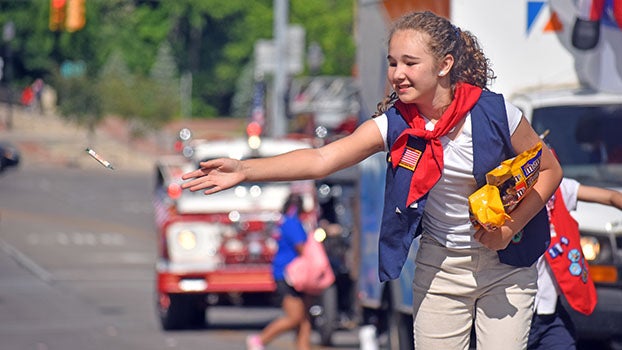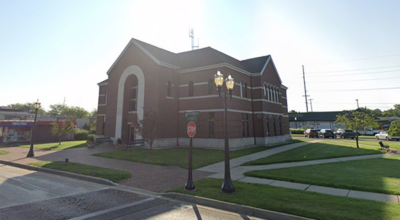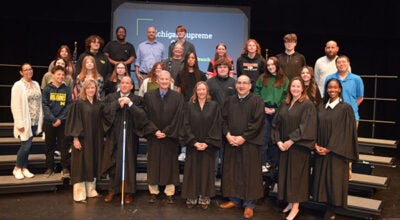Thanks for serving
Published 3:58 pm Thursday, November 10, 2011
Marissa Matson’s polite kindergarten students at Edwardsburg Primary School lined up one by one to thank World War II “soldier girl” Velma “Vel” Ripsco for her service.
Wednesday morning’s repetition made up for not hearing words of gratitude from 1945, when the war ended, until 2004 when she visited the women’s monument at the entry to Arlington National Cemetery in Washington, D.C.
“That was the first time I was ever thanked. When we first came back, nobody said thanks. I guess they were just tired of war,” Ripsco said. “I have four sisters younger than me and not one has asked me what I did. I guess they don’t care.”
“Many times veterans don’t feel appreciated for what they did,” said John Oakley of Coloma, who served in Korea and belongs to Lest We Forget.
Ripsco served in the Army Medical Corps. She received six weeks basic training, matching men at that time.
“I was in medical school. My choice was dentistry. I went to dental school in Denver, Colo. From there, I spent the rest of my military service in California. Traveling the U.S. was a nice thing to do. I enjoyed it. The experience of being in service in wartime is one you can’t possibly forget. Too many things happened in that time, like our President Roosevelt died while I was in service. It’s like losing a family member when your president dies.”
Ripsco explained to the children her sergeant’s stripes for the rank at which she was discharged and why uniform skirts were measured 19 inches up from the floor so “when we walked by in a parade, all skirts were the same length,” she said. “They were level and it looked pretty sharp.” The “rope” on her shoulder denotes service and she earned a good conduct medal.
When Oakley graduated from high school in Benton Harbor, he wanted to fly airplanes, so he enlisted in the Air Force before he could be drafted into the Army.
“I went to Texas for basic training,” he said. “They have to teach you all the soldier jobs, including marching. They told me my eyes weren’t good enough to be a pilot, so they sent me to engineering school. I was at a base in South Carolina, waiting to go to Korea, where the fighting was, when they sent me to Germany. I had never been to Europe or any other country outside of the United States. Crossing the ocean was a very good experience because I got to see Germany, France, Spain and England, which I had only read about in books. I never thought I would be there in my life. It was an education.”







